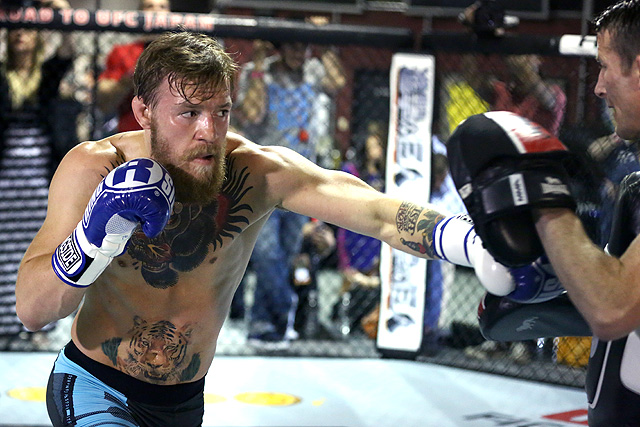Combat sports in Ireland have experienced a rapid ascent over the past two decades, transforming from niche pursuits into significant contributors to the national economy. From bustling MMA gyms in Dublin to packed-out boxing nights in Belfast, the industry has become a thriving hub of local employment, tourism, and digital commerce. Fueled by figures like Katie Taylor and Conor McGregor, the once-underground scene now sits firmly in the mainstream, drawing in fans, fighters, and investors from across the globe.
Nowhere is this impact more apparent than in the online betting sector, which has seen remarkable growth thanks to Irish punters’ interest in fight nights. The rise of UFC bookmakers in Ireland reflects not only the sport’s soaring popularity but also the broader role that gambling plays in the nation’s digital economy. With regulated markets ensuring safety and fair play, betting is increasingly embedded in the culture surrounding major events, whether it’s a local Cage Warriors card or a UFC pay-per-view from Las Vegas.
A Local Industry with Global Reach
At grassroots level, the growth of combat sports has given rise to a network of gyms, fitness centres and coaching careers across the country. Mixed martial arts, once a fringe activity, is now widely practised in towns and cities from Cork to Galway. Amateur boxing, which has long held a respected place in Ireland’s sporting tradition, continues to produce Olympians and world champions, supported by a national infrastructure of clubs affiliated to the Irish Athletic Boxing Association.
This has led to job creation not just for trainers and promoters, but for physiotherapists, nutritionists, and sports psychologists too. The knock-on effect for the wider fitness and health industry is substantial. Events, particularly on the regional circuit, also generate revenue for local economies – hotels, pubs, restaurants and transport services all see a spike when fight nights roll into town. This kind of economic ripple effect is often overlooked but crucial for smaller communities hosting combat sports events.
Fighters as Economic Catalysts
Superstars like Taylor and McGregor have not only inspired the next generation but helped reposition Irish combat sports as a legitimate economic engine. Taylor’s high-profile bouts, including world title fights at venues such as Madison Square Garden and the 3Arena in Dublin, have attracted international attention and substantial commercial revenue. Meanwhile, McGregor’s UFC success has turned him into a global brand, generating billions in pay-per-view sales and merchandise, some of which flows back into Ireland through sponsorships and promotional work.
Fighters at the elite level have helped open doors for investment in broadcasting rights and event hosting. DAZN’s partnership with Matchroom Boxing, for instance, has brought top-tier fights back to Irish soil, while the UFC has repeatedly eyed Dublin as a strategic destination for future events. These shows bring not just revenue, but cultural capital – establishing Ireland as a key player in the global combat sports ecosystem.
Media, Betting and the Digital Boom
As combat sports have moved from niche interest to mainstream entertainment, the digital economy has quickly caught on. Online streaming platforms, podcast networks, and fight-related social media content generate ad revenue and marketing opportunities. The Irish media space now includes dedicated combat sports outlets, freelance journalists, and influencers focused solely on boxing, MMA, or both.
One of the most significant growth areas remains online betting. Legal and regulated gambling is a cornerstone of the industry, with sports betting among the most popular categories for Irish consumers. UFC and boxing markets have expanded dramatically in recent years, with new customers being drawn in by high-profile contests and competitive odds. This, in turn, fuels further investment in marketing, data analysis, and tech infrastructure, creating jobs in sectors far removed from the ring or cage.
Challenges and Sustainability
Despite this economic optimism, there are ongoing challenges. The reliance on a few star athletes means the financial structure remains vulnerable to career declines or retirement. Moreover, the need for sustainable athlete pathways – ensuring that young fighters are supported with proper medical care, training facilities, and earning potential – is paramount if the sport’s economic impact is to continue growing responsibly.
There are also concerns about the impact of betting, particularly among younger demographics, and the government may face pressure to tighten regulations further. Balancing commercial opportunity with public welfare will be a defining issue for the future of combat sports in Ireland.
In conclusion, the economic footprint of combat sports in Ireland is more than just ticket sales and pay-per-views. It stretches across industries, boosts local economies, and contributes meaningfully to the country’s digital and physical wellbeing. As long as stakeholders continue to invest responsibly and inclusively, the sector looks set to remain a powerful economic force for years to come.

